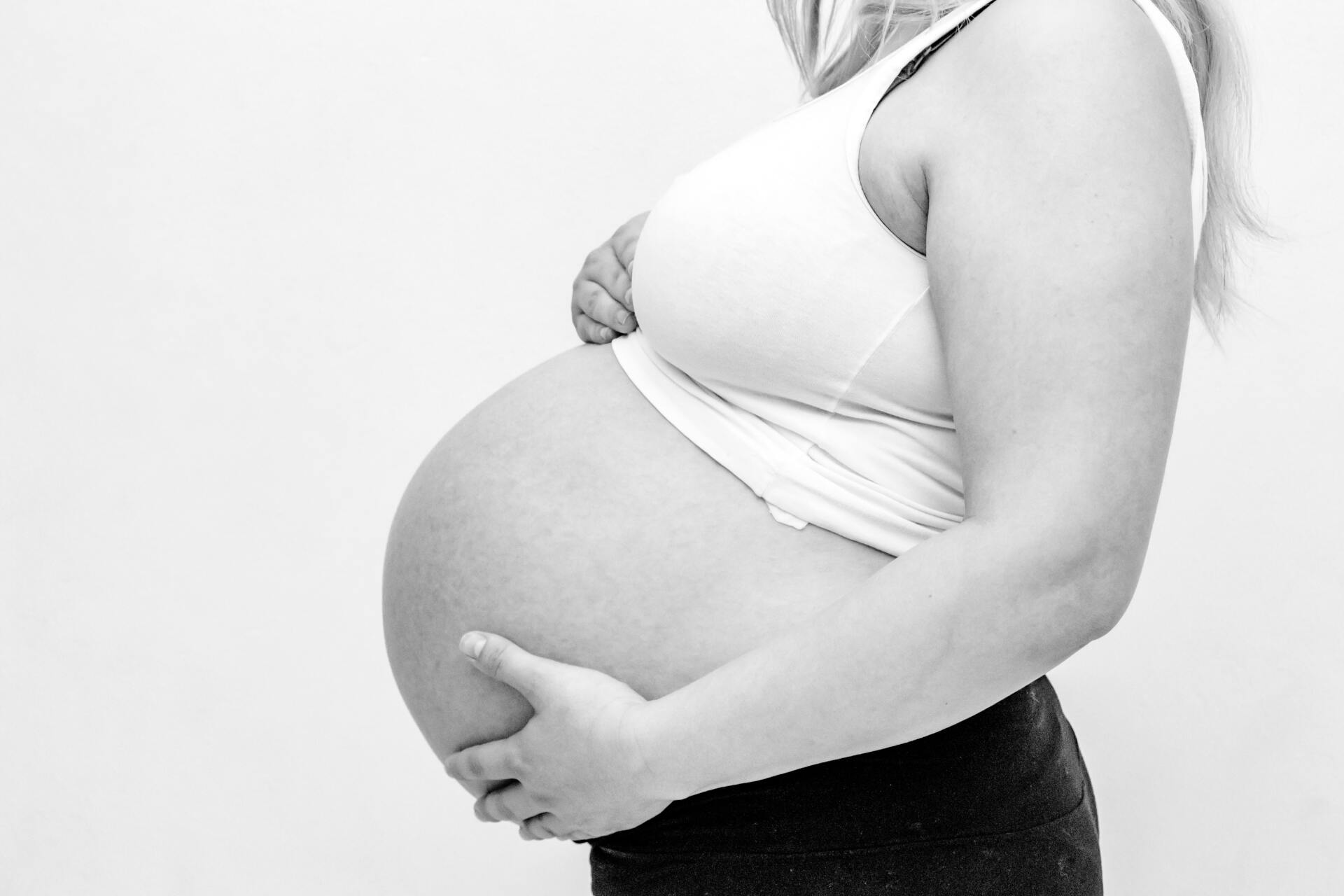Getting Better Sleep During Pregnancy
Patricia Chen, MD, FACOG • June 11, 2019
Pregnant and always tired? Yet somehow you can’t seem to get a good night’s sleep?
I get this all of the time with my patients so I decided to create a blog article about it. Growing a baby is hard work and taxing on your body. Your changing body can make it difficult to get comfortable. You may even be dealing with morning sickness or heartburn. Understanding the barriers to good pregnancy sleep is a good place to start. Additionally, creating sleep rituals and prioritizing sleep is the key to getting sleep. Below are a few tips that I share with my patients.
Sleep problems by trimester
Your body is constantly changing when you’re pregnant. The sleep issues and challenges you may face during each trimester will change as each trimester changes so having an idea about what to expect can help you deal with the changes as they come.
First Trimester
During your first few months of pregnancy, your body probably doesn’t look like it’s going through a lot of changes. Most of your friends and family probably don’t even notice you’re expecting. However, you may notice some changes starting after the first few weeks. For example, the high influx of pregnancy hormones in your system can disrupt your sleep so in the beginning you may experience the following:
Nausea
Morning sickness doesn’t only happen in the morning. You can be sick any time of day or night. If you’re vomiting or feeling nauseous at 1 a.m., you’re not going to sleep well. My suggestion? Figure out what helps your nausea and keep it nearby. Nausea is often worse when your stomach is empty, so keep saltine crackers, organic ginger ale or a ginger shot on your nightstand so you don’t have to run to the kitchen during the middle of the night. Talk to your doctor if your nausea is severe.
Frequent urination
You don’t need a full-sized baby pushing on your bladder to need the bathroom more frequently. Pregnancy hormones and a growing uterus can do that for you. The fix: Stop drinking a lot of fluids late at night. Cutting caffeine later in the day will also help.
Aches, pains, and feeling tired all the time
Remember, your body is undergoing some pretty significant changes so it’s not uncommon to experience body aches. Whether your breasts hurt, or you have pelvic cramping, aches and pains can make it hard to sleep. You might also feel the need to nap during the day. The fix: Exercise early in the day (later in the day might be keeping you up), plan a sleep schedule and try to stick to it. If you nap, try to keep it to 20 minutes and try not to nap late in the day.
Second Trimester
The second trimester is generally known to be a time when pregnancy is easier, which means you should be able to get some better rest. If you’re still not getting the shut-eye you’d like, it might be because of the following issues:
Leg cramps
Leg cramps during pregnancy can start to set in during the second trimester and may worsen in the third trimester. These cramps usually happen in your calf, but can affect any part of your leg or feet.
My suggestions: If you feel a leg cramp setting in, point your toes toward your head and hold that position. This movement can ease cramping. However, avoid pointing your toes in the opposite direction or away from your head (which can make cramping worse). Massaging the area or walking around after a cramp can also ease the pain and soreness afterwards.
Dreams
Pregnant women can have some crazy and vivid dreams. This is quite normal. These dreams can be made worse by stress. My fix: Try to schedule daily relaxation at the same time each day on a regular basis. Meditation and other relaxation techniques can be very helpful. Try apps like Inscape or Calm. Breathing techniques, using a lavender neck pillow or a little lavender aromatherapy in the 2nd and 3rd trimester can help create a nice ritual too. You will look forward to these daily rituals and begin to feel the benefits from a relaxation routine or sleep ritual.
Heartburn
As your uterus grows, it places pressure on your stomach, which means stomach acid moves up your throat. Lying in bed to sleep can make this worse. The fix: Avoid foods that cause heartburn (spicy, acidic, or fried). Instead of laying down right after meals, stay upright. You can also prop yourself up when you sleep to counteract the heartburn.
Third Trimester
During the third trimester you’ll probably experience more trouble sleeping than any other time during your pregnancy. This is partially because you’re larger than usual as you near the end of your pregnancy. Finding a comfortable sleep position is difficult. You may also experience the following:
Back pain
A combination of the hormones of pregnancy that relax the ligaments in your joints and lower back and your growing belly may be causing back pain that keeps you up. My suggestions: Stretch and exercise often to keep your back in good shape. Sleep on your left side and use a pillow between your knees or under your stomach.
Frequent urination
Again, your growing baby is starting to put pressure on your bladder, which causes you to get up and go frequently at night. The fix: Decrease the amount of liquids you drink starting in the late afternoon.
Restless leg syndrome
Can’t keep your legs still? About 20% of pregnant women experience this, which can make sleeping harder. My suggestion: Gentle walks and leg massages can be wonderful and nurturing. Using Yoga to tame your restless legs syndrome can be extremely helpful too. You can also stock up on foods rich in iron and folate, which can help reduce your restless leg syndrome.
Breathing issues
Congestion and weight gain can lead to snoring and even sleep apnea. The fix: Sleep on your left side. Discuss your breathing and sleep issues with your doctor or a certified sleep specialist if symptoms get worse.
Pregnancy sleep positions
When you’re pregnant, finding a comfortable position to sleep in can be challenging at best. Sleeping on your back isn’t recommended because it can obstruct blood vessels and slow blood circulation for you and your baby. But sleeping on your stomach will hurt your belly or breasts or cause stomach problems. So what should you do? Side sleeping is considered the safest for you and your baby. Most doctors and experts recommend sleeping on your left side whenever possible because it’ll improve circulation and protect your liver but either side is fine; just find the spot that’s most comfortable for you. Need ideas on how to get comfortable?
- Prop with pillows. Placing a pillow between your knees or underneath your tummy can give you extra support. A full body pillow is great for this. Pillows positioned in the right way can also keep you from rolling onto your back or stomach while you sleep.
- Prop up the top of your bed a few inches with books or blocks. This will elevate your head and help reduce heartburn.
- Placing a pillow under your hip will allow you to lay more on your back without being completely flat.
No matter what you do, sleeping while you’re pregnant can be a challenge so setting yourself up for success can help alleviate any stress. Creating a sleep ritual by trimester can be helpful and can help you look forward to sleeping vs becoming stressed and worked up before bed. As always, talk and partner with your doctor as they may have additional solutions or suggestions. Here’s hoping you get some zzz’s in the upcoming months ahead!
Dr. Patricia Chen

Pregnancy Questions and Answers with Boca Raton Midwife Lindsay Leider You've got questions and Boca Raton Midwife Linsday Leider has the answers for you! Let's take a look at some of the most common questions we get from patients. Boca Raton midwife Lindsay Leider is a certified nurse midwife and advanced practice registered nurse. A University of Central Florida and University of Florida graduate, Lindsay has bee a practicing midwife at Women's Wellness Center in Boca Raton for several years now. The role of the midwife has expanded over the years. Modern midwives like Lindsay are true partners to their patients, helping to guide and being a direct part of the care team for the entire pregnancy. Midwives are also indispensable to patients during postpartum period.







